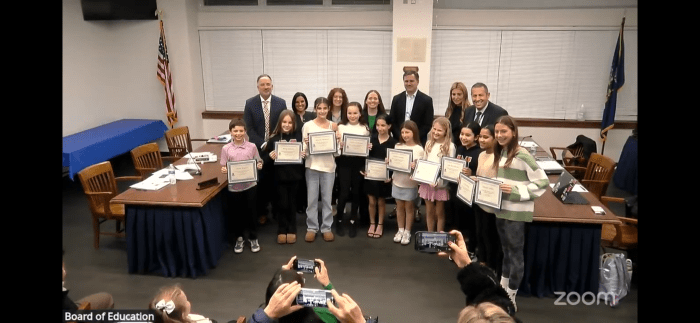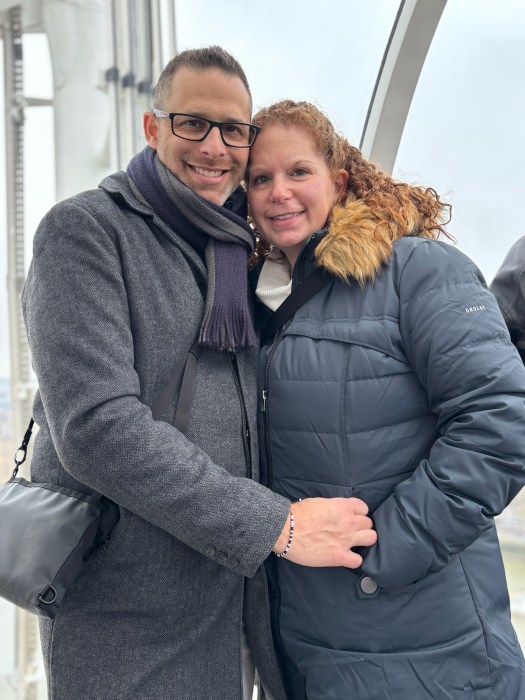THE WAR WITHIN
Serving the country in the wake of the Great Recession makes adjusting to civilian life that much harder, say those who advocate for and support LI’s veterans. It doesn’t help the cause when employers think that these men and women who served may be suffering from untreated problems.
“The majority of the people who have served come back stronger for what they’ve done,” says Roberts of the Rosen Center. “They’re better leaders, they’re team players, they’re mission-focused, and they’re disciplined.”
But Roberts would not have gotten where he is today without seeking help—the hardest decision he says he ever had to make.
“Three years after I got home,” Roberts recalls, “my dad said, ‘I still don’t think you’re behaving in a way that seems like you were before you left.’ That was shocking to me because in my own mind I thought I was behaving completely normally.”
He’d been scanning the hillsides of California for the silhouettes of enemy soldiers, wondering whether vehicles on the highways next to him had bombs or weapons inside, even though he knew they didn’t. And once his girlfriend stepped on some bubble-wrap and “it was as though she’d fired an M-16 right behind me… She said that was the angriest she’d ever seen me.”
And so, to get his dad off his back, he decided that he would have to get treatment himself if he were ever to become an advocate for veterans, something that he decided he really wanted to do. Without going for therapy, how could he tell someone else what to do?
“It was as simple as having a conversation with somebody,” Roberts says today about his treatment. “I’ve been so involved with this stuff for years [now] I can’t believe I made such a federal case out of it, but I can relate to everybody who has such a hard time taking that first step.”
Scott Castillo, deputy director of the Nassau County Veterans Service Agency, who served in Iraq and Afghanistan, similarly was reluctant to get help and now makes it his life’s work to show the wave of soldiers who are now returning home from the war that seeking assistance is not a sign of weakness.
“When I got back, it took me seven months to become a civilian,” he says. “It was very difficult. Others take years. Some of them didn’t get back. You’ve got to start from square one.”
Sadly, some Iraq war veterans who don’t seek treatment for PTSD have committed suicide. Families of these soldiers often suffer in silence since such cases typically don’t receive much attention, but that wasn’t the case with former Marine Bartholomew Ryan, an Iraq vet who hanged himself at Nassau jail last month.
For nurse Hatty Baldwin, seeing her fiancé die last year of a bad combination of prescribed drugs for his PTSD pushed her to fight against such preventable deaths when veterans are years removed from the battlefield.
John Jennings had served two tours with the Army in Iraq before he was discharged in 2005. He and Baldwin began dating in 2008. Four years later, she found him dead at age 34.
“As far as I’m concerned, he’s a casualty of the war,” she says from her home in Calverton, not far from Calverton National Cemetery, where Jennings is buried.
“The war doesn’t stop, the nightmares don’t stop,” she says. “It just keeps going and going and replaying in his head.”
Baldwin says Jennings was in therapy for his PTSD but needed group treatment with other young men he could relate to—something he never got. Sen. Zeldin has since appointed her to a panel to help other vets find peer counseling, an initiative named in honor of Jennings, who’d campaigned for Zeldin.
“I don’t think until the day he died he acknowledged how bad he was,” Baldwin says of her fiance.
Nine years after “Shock and Awe,” with our troops still at war in Afghanistan, Javis of the Veterans Health Alliance hopes he starts hearing more “success stories” here at home about vets “who admit they had problems and went for help and got better! That’s the story for me.”

































